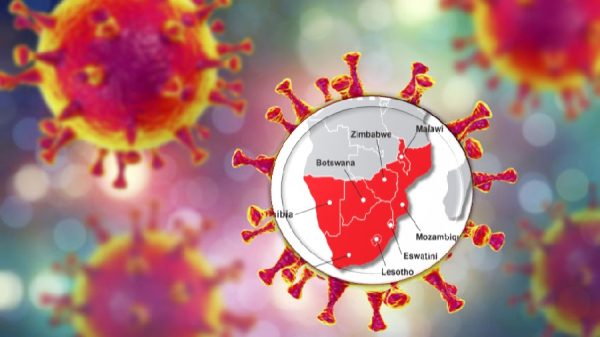
It Is Not Over Yet, Omicron the New Variant of Covid-19 In South Africa Raises Concerns
A new variant of Covid-19 has been reported in South Africa and classified as B.1.1.529 a variant of concern. It is named as OMICRON. As of November 26th many countries have halted air travel from southern Africa to slow the spread of the Omicron.
According to World Health Organization, Omicron has several mutations that might have an impact on its behavior. Like how easily virus can spread or the severity of illness. According to researchers in South Africa and scientists around the world there are very few things we know about the variant.
In South Africa many teams were trying independently to figure out why the cases were spiking in Gauteng, a northern province that includes Pretoria and Johannesburg. Lancet a private lab noticed that routine PCR tests for SARS-CoV-2 were failing to detect a key target, the S gene, in many samples, a phenomenon previously seen with Alpha variant. Reason for this is, the genome was so heavily mutated that the test missed the S gene !
“We were shocked by the number of mutations,” says Tulio de Oliveira, a virologist at the University of KwaZulu-Natal and NGS-SA ‘s principal investigator. This week, further the research team sequenced another 100 randomly selected sequences from Gauteng in the next 24 hours. All showed the same pattern. After presenting the evidence WHO named the new variant as “Variant of concern” and named it Omicron (based on Greek alphabet).
As for the public the concerning questions are :Is Omicron more infectious and deadly? Will it re-infect recovered people? How well does it evade vaccine-induced immunity? Will there be more mutations of the variant?
- Transmissibility: Not clarity much about Omicron transmissibility compared to other variants. In South Africa the number of positive testing population has been rises in areas where the variant is noticed. Further studies regarding the epidemiology of the variant are underway.
- Severity of disease: It is still not very clear whether the severity caused by the Omicron virus infection is when compared to earlier variants including the Delta. However, the preliminary studies say that the number of hospitalizations is increasing, and it might be due to increase in number of people who are infected are more.
- Symptoms: Studies shows that the symptoms caused by Omicron is different from other variants. As per previous knowledge on other variants including Delta, Covid severity can cause severe health issues and could be fatal. Covid variants that are dominant now in the world infects most vulnerable individuals and found in youngsters.
- Regarding vaccines: WHO is working with its partners to understand the impact of vaccines on Omicron. Covid vaccines are playing a great role in reducing number of infected people as well as in reducing severity of the condition.
- Tests to detect Omicron: RT-Polymerase Chain Reaction or RT- PCR tests help to detect this new variant too. Researchers are working on the impact of rapid antigen detection tests on Omicron presence.
- Treatment for Omicron infection: IL6 receptor blockers and corticosteroids are still effective and helps to manage all variants. If any other treatment is helpful to control Omicron is yet to be assessed.
According to WHO, Omicron is designated as variant of concern. Further studies on transmissibility, severity of infections, vaccine performance, diagnostic tests and treatments is taking place throughout the world. WHO is encouraging all countries to share their patient data to describe clinical characteristics and outcomes of patients. WHO’s technical advisory group on virus evolution (TAG-VE) is monitoring and evaluating the data as it becomes available to assess how Omicron mutation alters the behavior of the new variant.
According to Science Magazine- We will not know how dangerous Omicron for few more weeks!
Meanwhile countries are directed to continue the implementation of public health measures to reduce Covid-19 circulation. The most effective steps public can take is to reduce the spread of any covid variant is,
- Following proper social distancing
- Wearing mask
- Improve ventilation at home
- Avoid highly crowded place
- Washing hands frequently
- Getting vaccinated including booster shots.
References:
Image: https://commons.wikimedia.org/wiki/File:Africa_satellite_orthographic.jpg : Attribution- NASA, Public domain, via Wikimedia Commons
Author: Sumana Rao | Posted on: November 29, 2021
« Difference Between COVID-19 & Seasonal Allergy Symptoms How to be safe during Covid-19 surge and cold season »






















Write a comment